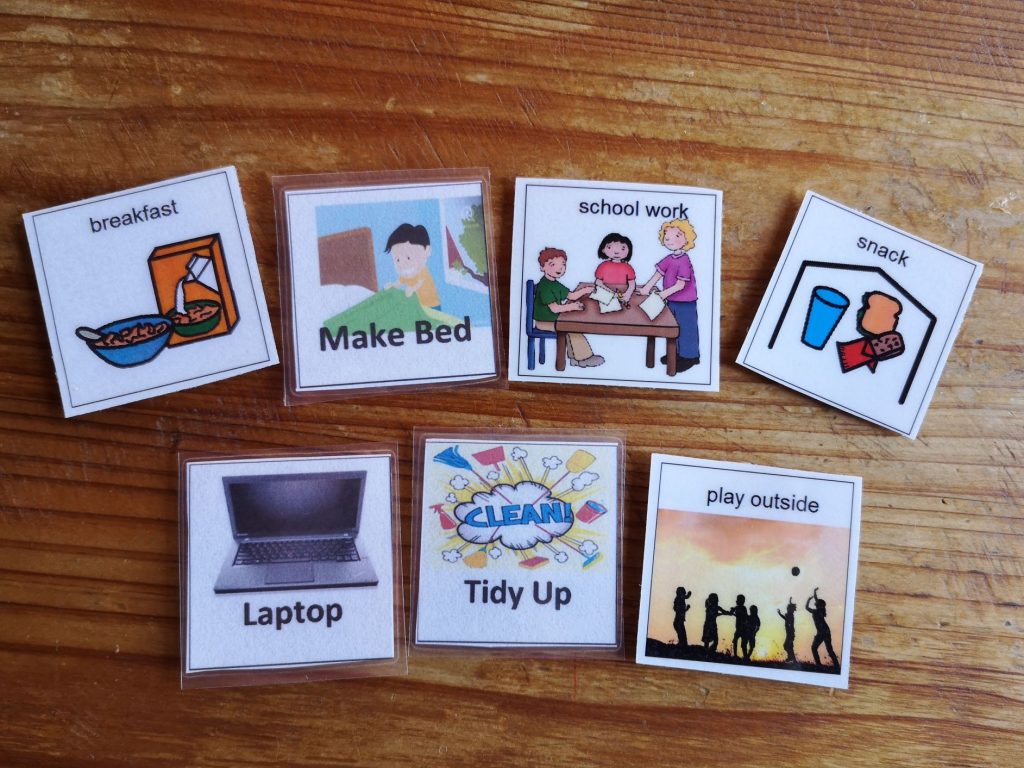
2nd April 2020
World Autism Awareness Day: Supporting young people during unusual times
World Autism Awareness Day is celebrated internationally on 2 April each year. For us, it’s a time to recognise all the people with autism who play integral roles in our community. This year, the day occurs during an unprecedented time—the COVID-19 pandemic. We will look at the impact CoderDojo has had on some members of our community, and tips for supporting young people with autism at this time.
CoderDojo, an inclusive space for all
One of the greatest things about CoderDojo is that it is a space where everyone is welcome. Whether you come along to meet new people, gain new skills, or simply have fun, there is something there for you!
Ewan is an awesome young creator from Ireland, who has been making huge strides with his coding achievements. Ewan’s mum, Sandra, shared what it’s meant to them to have an environment like CoderDojo to attend:
Ewan’s experience of CoderDojo has always been a positive one. It’s an environment where no one feels different or excluded, and all ideas and inspirations are welcomed and encouraged.
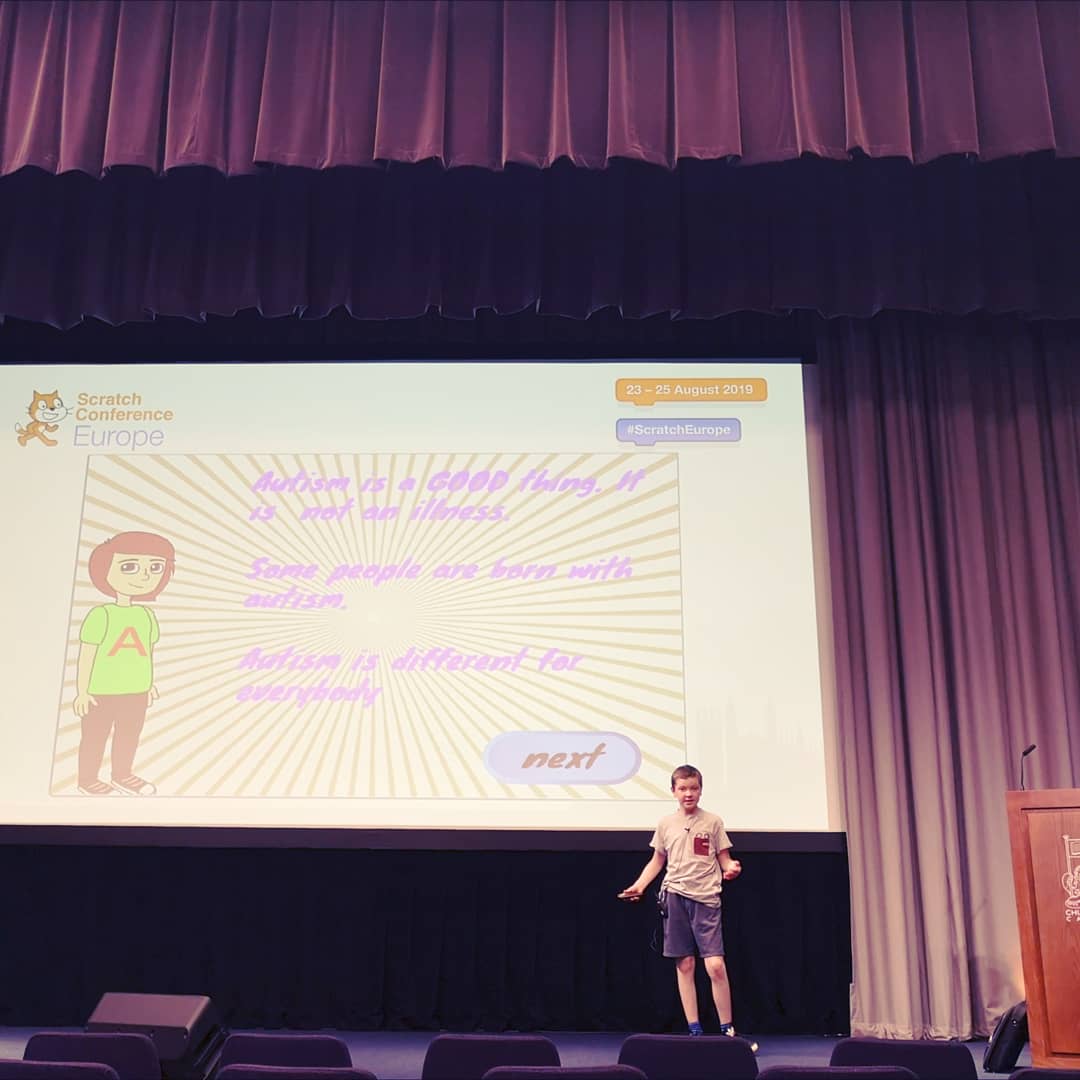 Ewan speaking at Scratch Conference Europe
Ewan speaking at Scratch Conference Europe
We also heard from another parent, Fiona, who created an inclusive Dojo to serve the autism community in Northern Ireland. Fiona echoed Sandra’s sentiments, with an emphasis on having an inclusive activity for all the family:
There was a need to address social isolation experienced by families living with Autism. Having a regular club to attend which is inclusive for all the family has been invaluable.
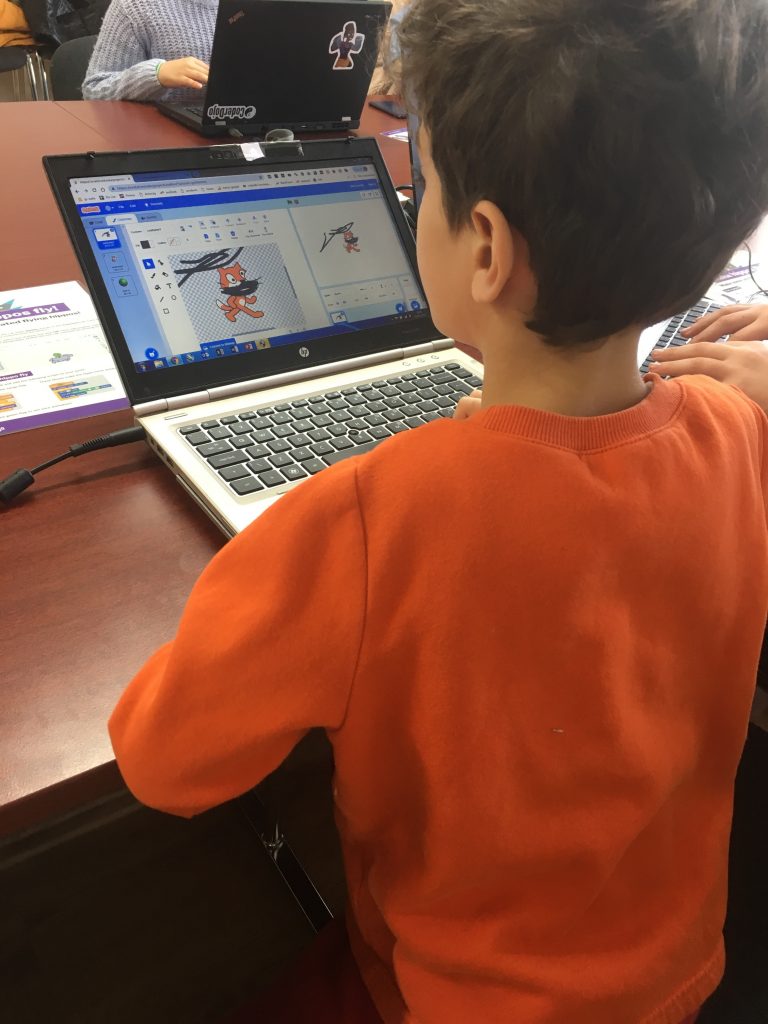 A busy young creator at Fiona’s Dojo
A busy young creator at Fiona’s Dojo
A research paper published by Curtin University also mentions the impact that inclusive spaces like CoderDojo can have for young people with autism:
This [the CoderDojo club] environment also met the participants’ need to feel accepted and engaged and for their talents and abilities to be recognised by others. [source]
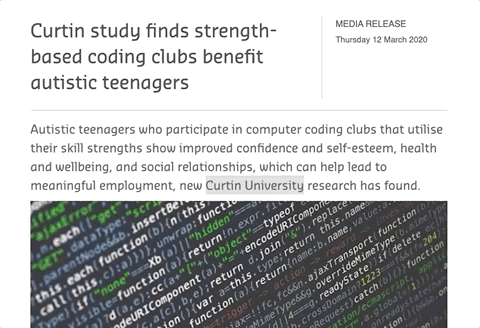 The research paper from Curtin University
The research paper from Curtin University
Supporting different ways of working
In a CoderDojo club, all young people are free to work on projects that interest them, at their own pace. This approach allows for different ways of working, and helps young people to learn in a way that is right for them. Our Accessibility Guide further outlines reasonable adjustments for supporting Dojo members with disabilities or additional needs.
Ewan uses a range of tools to support him to get the most from his CoderDojo experience:
…there’s no ‘one size fits all’ in autism so use the resources that work for you. My son brings his ear defenders to block out the hum of chatter around him so he can concentrate better. He has such a great time it makes him want to stim, so he takes regular breaks to allow him to do this.
Fiona’s Dojo in Northern Ireland also takes the young people’s feedback on board in order to best support them:
We gather feedback at the end of each event, which helps us to meet individual needs and informs next steps. [Ninjas] share how they feel about the club, with quotes such as “It was great”, “I enjoyed it so much”, “I love coding”, “It is the best it can be”.
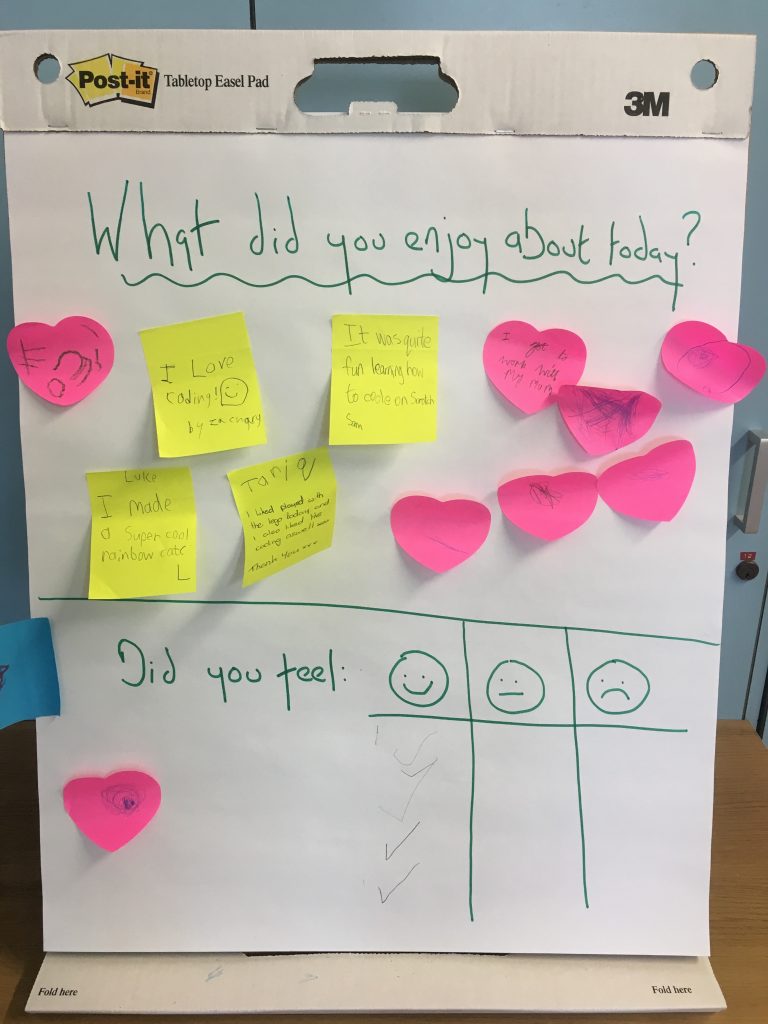 Getting feedback from the Ninjas in order to support them
Getting feedback from the Ninjas in order to support them
Adapting to these unprecedented times
While we all must adapt to changes due to COVID-19, many people with autism may be finding the changes to routine extra challenging. While everyone will have different needs, Sandra has shared some excellent tips below which will no doubt resonate with many parents.
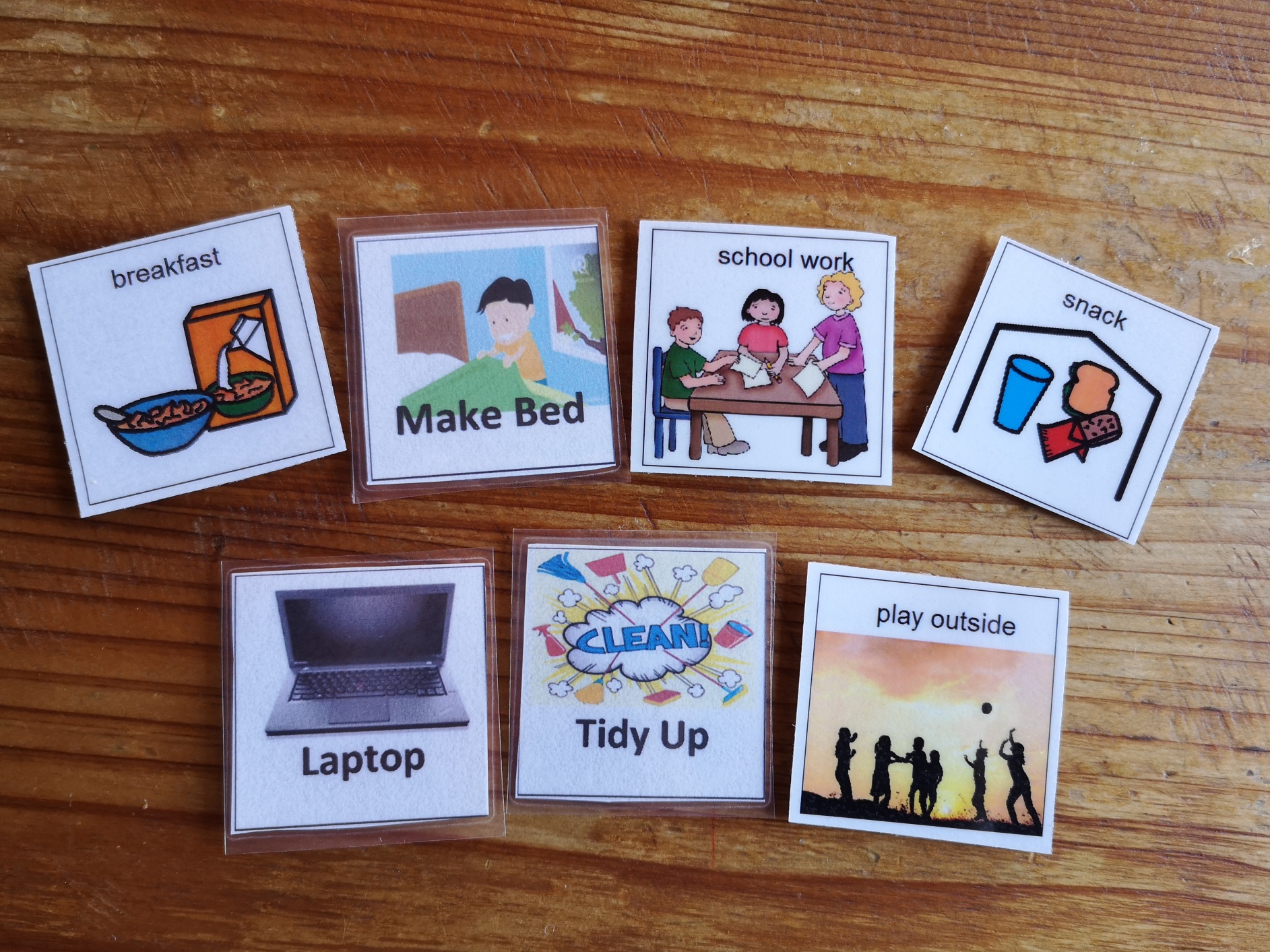 A visual timetable, used at home by Ewan and Sandra
A visual timetable, used at home by Ewan and Sandra
- Kids thrive on routine and structure so the most important thing is to put some predictability into their day, e.g., a visual timetable and familiar school routines that can be replicated at home.
- Make sure kids are getting the sensory input they need to regulate themselves, e.g., movement breaks…such as throwing and catching a ball can provide much needed sensory input to help kids get calm and focused
- We need to put some control back into the hands of our kids in order for them to feel secure. Start by giving kids a space to talk, open the conversation for them; what do they know about Covid-19? Some kids might prefer to draw or write their feelings.
- Focus on things that are within their control, e.g., discuss how they can play their part by washing their hands, staying home, eating well and getting lots of sleep to stay healthy.
- Watch out for their exposure to media outlets as this will only feed anxieties. Focus on the positives; the frontline teams, essential retail staff, the community volunteers. Always emphasize the good.
We’d like to thank Sandra and Fiona for their input with this blog. We were delighted to hear about Ewan winning Mayo Young Person of the Year, and about Fiona planning online sessions for her Dojo. There is so much positivity evident in our community, and on that note — Happy World Autism Awareness Day!